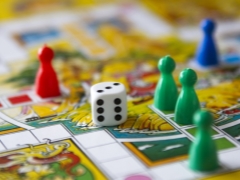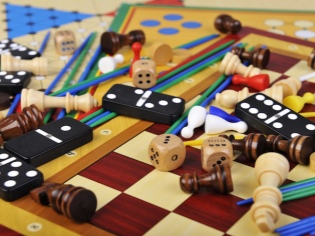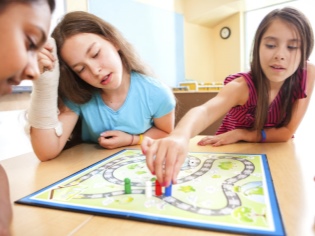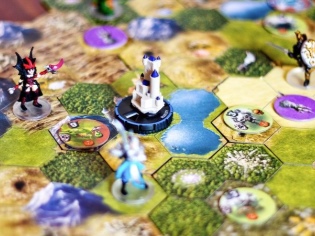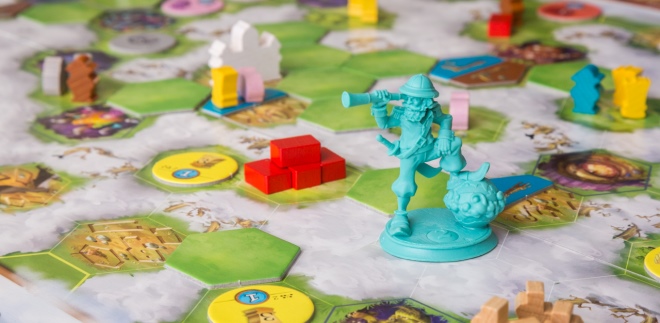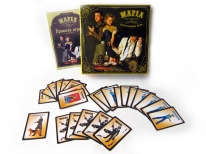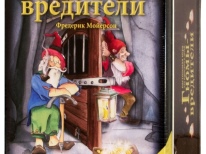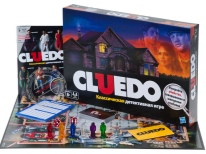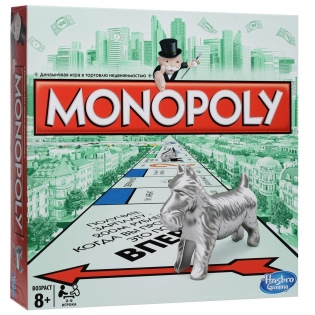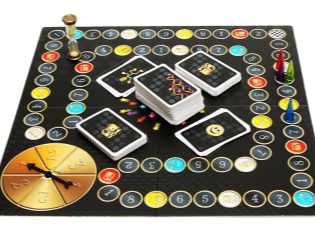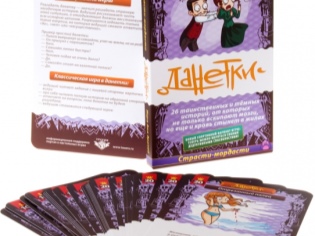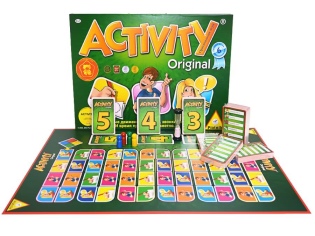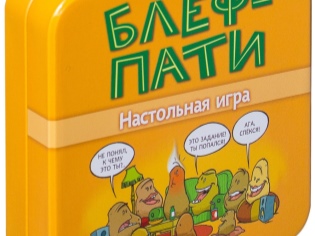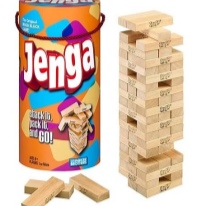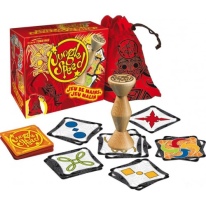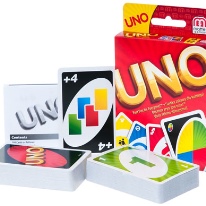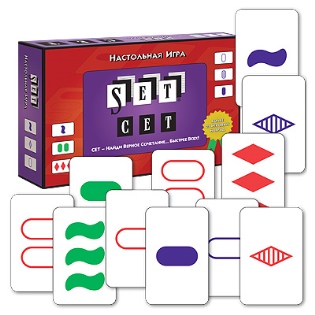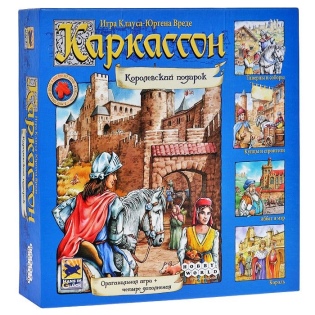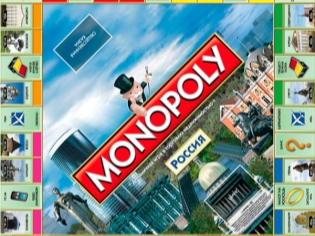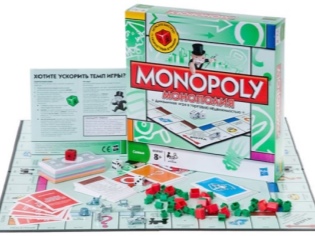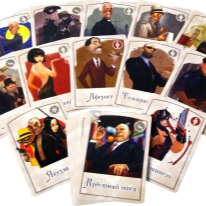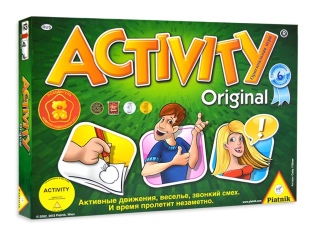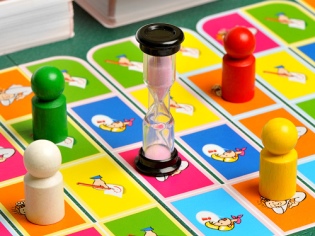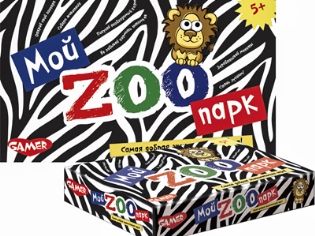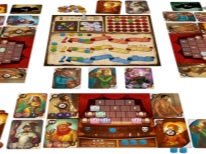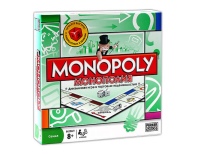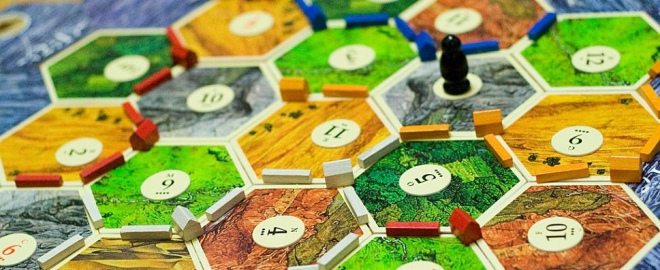Board games for children 10-14 years
Board games in recent years have somewhat lost ground due to the rapid development of digital technologies, but, contrary to pessimistic forecasts, they have not completely disappeared, and it seems that they will not disappear. Traditionally, such entertainment is the most popular among teenagers and young people, so they still remain a good gift for children aged 10-14 years. Another thing is that they should be chosen based on the age characteristics of the potential owner.
Benefit
In the past decade, the main buyers of board games are young parents, since teenagers and young people have largely moved on to play in the virtual world, and board games for the youngest have a noticeable learning effect. However, it would be wrong to think that a board game can not give anything new to a teenager - just now you need to choose something much more complicated and interesting. At this age, various economic strategies that impart business skills as well as cognitive games that make it possible to learn something new are interesting.
Many popular variants are based on detective stories that stimulate imagination and logic.
Among other things, the benefits do not necessarily lie in the obvious development, it is also in improving the mood, which is provided in the process of an interesting game with friends. The last at the age of 10-14 years is especially important, because now is the stage when a child leaves the childhood and becomes a teenager. On the one hand, the child faces new problems and experiences that are much easier to pass if there is a lot of positive and pleasant communication in life. On the other hand, the child’s consciousness is now reorganized, at this moment it is determined whether he will learn to fully meet, communicate and behave in society, or remain reserved and unsociable, and board games are an ideal platform to practice being the soul of the company.
Finally, the board game is another alternative to sitting out in the virtual world. The negative impact of overuse of digital technologies is obvious to most people right now, but children are the category of the population that does not see this, and it is they who are most likely not to be able to fully return to “real” life if their virtual worlds are tightened once.
Board games with their interesting stories, an indescribable spirit of competition and a cheerful social circle of like-minded people and like-minded people can save a child from being completely immersed in the virtual before it's too late.
Varieties
The segment of board games, suitable for children of 10-14 years old, is relatively small, but still it is extensive enough to “get lost” in it without prior preparation. Choosing a gift, you need to focus on the child's interests that have been formed, and in order to set the general direction of the search, we suggest that you consider the most common types of board games. We deliberately removed from the list children's games for younger age groups, as well as classic, too obvious and not the most exciting games like chess and backgammon. Before you - only that which was invented relatively recently and that the younger teenager will surely interest. So, you should pay attention to the board games of the following types:
- Psychological role. The meaning of such games is to try on the role of a particular character and show themselves from the best side in a certain complicated situation, making decisions that affect the final outcome.Most often, teenage stories, one way or another, are connected with criminal themes, and the most vivid example is the famous "Mafia”, Which simulates a real city with the struggle of ordinary people against criminals. Other famous games of the same genre are “Dwarf pests"And"CluedoAs well as dozens of others.
- Educational. Some games are both interesting and mind-friendly. All economic strategies, for example, the legendary “Monopoly, The meaning of which is to build your own business empire and eliminate competitors. In the game process, the basic rules of doing business are taught, and to make it more interesting, there are dozens of varieties from the same opera with a different entourage - purchased enterprises can be clearly linked to one country, city or occupation. In order not to be limited to the economy, let us give another example - take at least a game "Evolution”, In which the concept of Darwin’s theory is clearly presented. This also includes many different quizzes.
- Communicative. Such solutions are a great way to not only “kill” time, but also to get to know others better, or simply have a lot of fun. Some of them ("Alias», «Danetki" or "Activit") Are a common game of guessing words, but they differ significantly by the rules - you can explain both with words and only with gestures and facial expressions, and those who guess can sometimes help themselves with clarifying questions, and often just call the options that come to their mind. A great way to stir up a party is to play atBluff party”, In which you need to guess whether the person is telling the truth or not.
- Skill games, attention and reaction. But this is one hundred percent option for large and noisy companies. He develops the above qualities, although, at first glance, such a game does not carry any meaning other than entertainment. The task is to accomplish this or that simple task faster than others, for example, to shout a code word upon the occurrence of a particular situation. Popular games of this type include “Jenga», «Wild jungle», «Uno" and so on.
- Brain teaser. Logic developing games are popular among children of 10-14 years old, but they need a certain complex plot. Recognized hits in this genre are "Set"And"Carcassonne».
The most interesting games
The children of 10-14 years old are already interested in games with a rather complicated plot, so in many of them, their partners in the game may well be adults. We chose several games and consider them in more detail - perhaps this is what you yourself would love to play with your child. The games were specially chosen in different genres - so that everything was interesting.
- Monopoly. If you have always dreamed of becoming rich, then this game is for you. You can play it together, but it is better to increase the number of participants to at least 3–4, or more. At the start, you get a certain capital, and, throwing the dice, walk around the playing field where you can buy companies (both abstractly, such as a transport company, and with a specific real name, depending on the modification of the game). There are surprises - you can suddenly win extra money, get under the penalty and even go to jail.
Creating a monopoly in a certain area of the economy, you develop a business and dictate prices to other players, gradually ruining opponents.
- Mafia. This game is for a really big company, at least 8 people play it, optimally - up to 16. You are in a city where a small part of the population is an organized mafia, and the majority are civilians who are tired of rampant banditry. The latter are unorganized, ostensibly unfamiliar, but declare war on the mafia, and she declares war in response. The trick of the game is that only the mafia knows each other in person, while civilians act completely at random, trying to figure out the enemy in their ranks by discussion.In more complex versions, there are other characters with special abilities. The desktop version is often criticized for the fact that it, unlike the original, is somewhat removed from the psychological discussion to identify the enemy. Usually this game is advised not to start playing before 12-13 years old.
- Activity. The boxed version of the famous game in which you need to show or draw a hidden word so that everyone else can guess it. Participants aged at least 11 years old (for junior concepts from the set may turn out to be too complicated) are divided into teams, and then one by one player from each team pulls a card with the word, which should have time to show its comrades within a minute.
The added complexity of the game is that the words are divided into more or less complex ones with different points, and the team that has the most points wins.
- My zoo. This game for 2-4 people, at first glance, resembles "Monopoly", but only by the genre of the economic game and the appearance of the field. In fact, here the playing field sectors are not enterprises, and not even animals, but only opportunities — to buy animals or food for them (and without specifying what is being bought on the cell, it will be in a separate card), and also to look after it . The point is to buy animals and keep your zoo in good condition. The winner will be the one who creates the best zoo.
Reviews
Most parents further admit that they did not expect that the gift bought for the child would delay them so much. Indeed, many board games for teens are complex enough to enthrall adults, and most importantly, they don’t need modern gadgets and amazing skills to work with them. Many commentators point out that modern board games are informative enough, the complexity of the plot is not inferior to good computer samples, and the color and naturalness of the props are sometimes so good that they simply cannot attract attention. Part of the comments is devoted to the fact that, thanks to the purchased game, it was possible to at least partially distract the child from the computer and interest him in live communication.
Negative opinions are strictly singular and they relate exclusively to the unsuccessful bundling of individual (more often - inexpensive) games, where individual components are poorly made and quickly become unusable.
In this video you will find even more games for the whole family.
